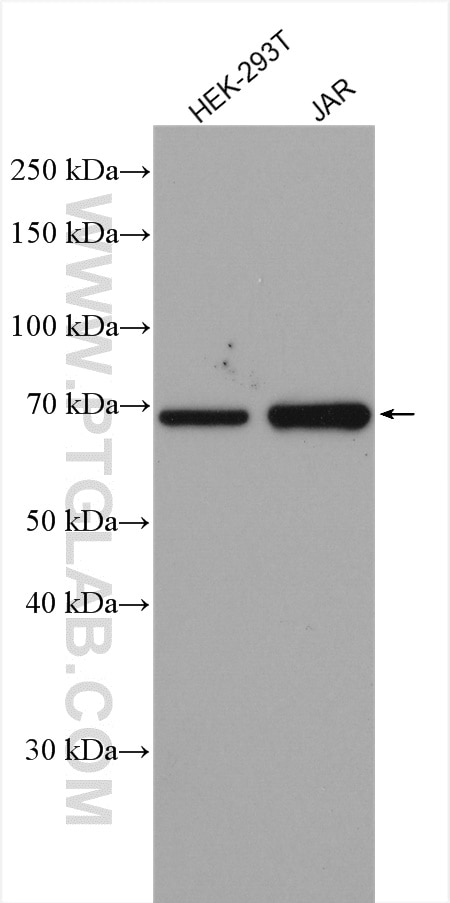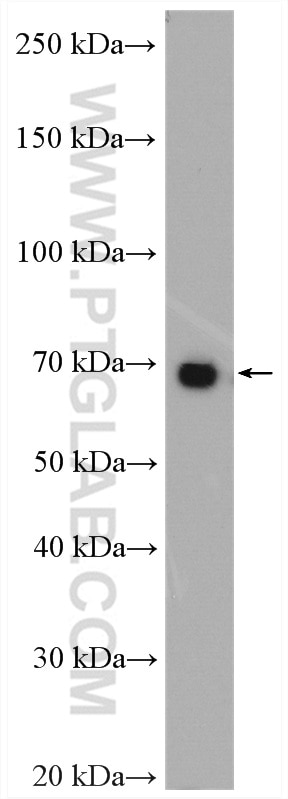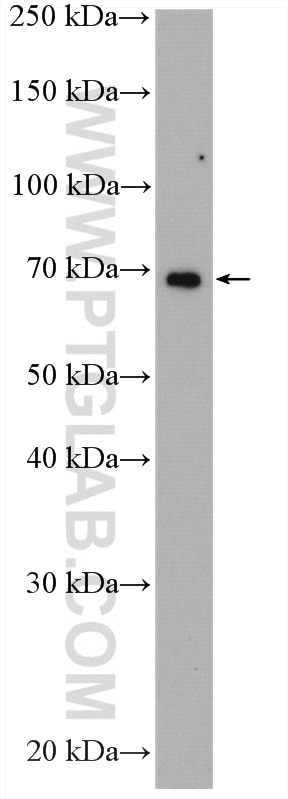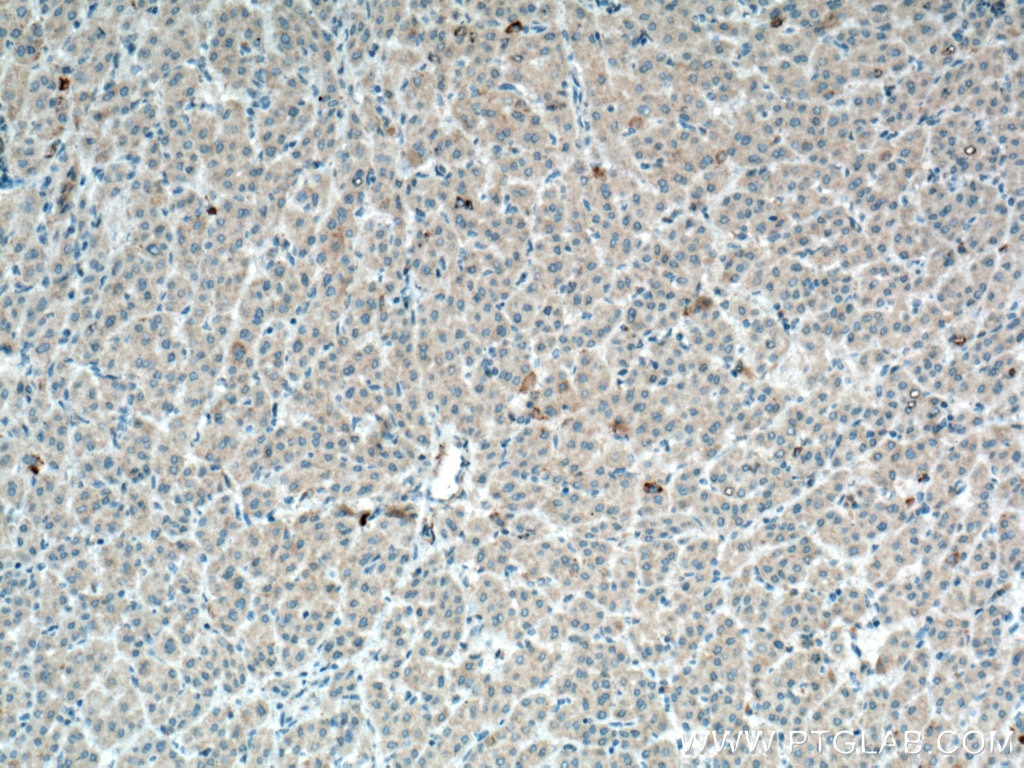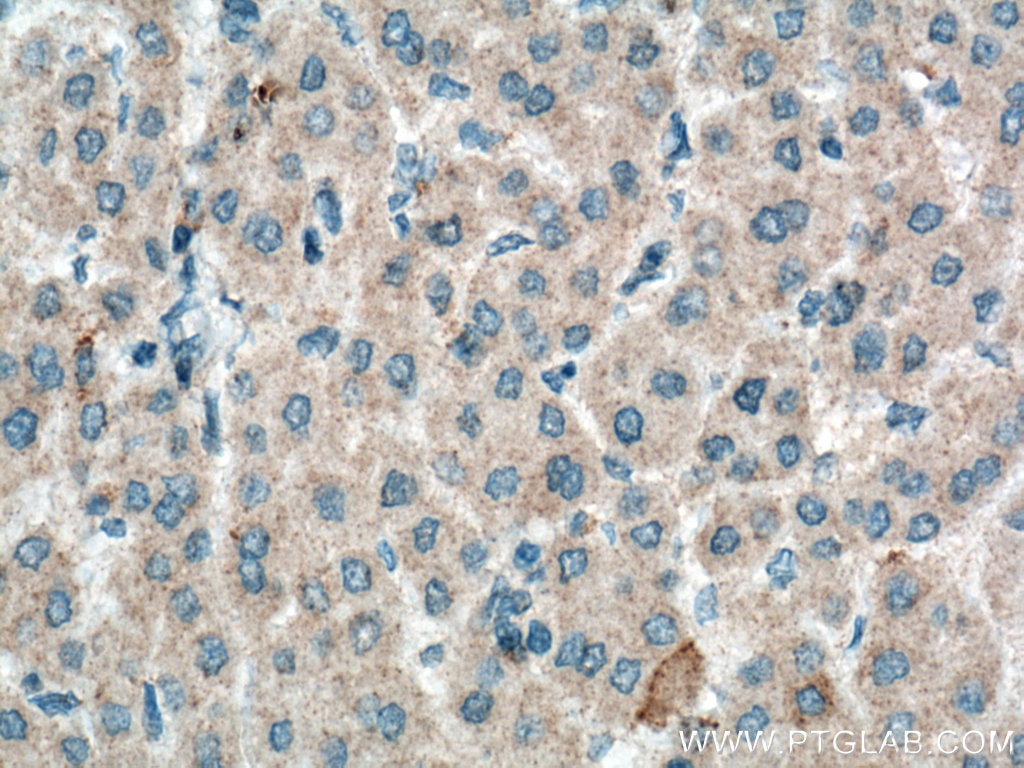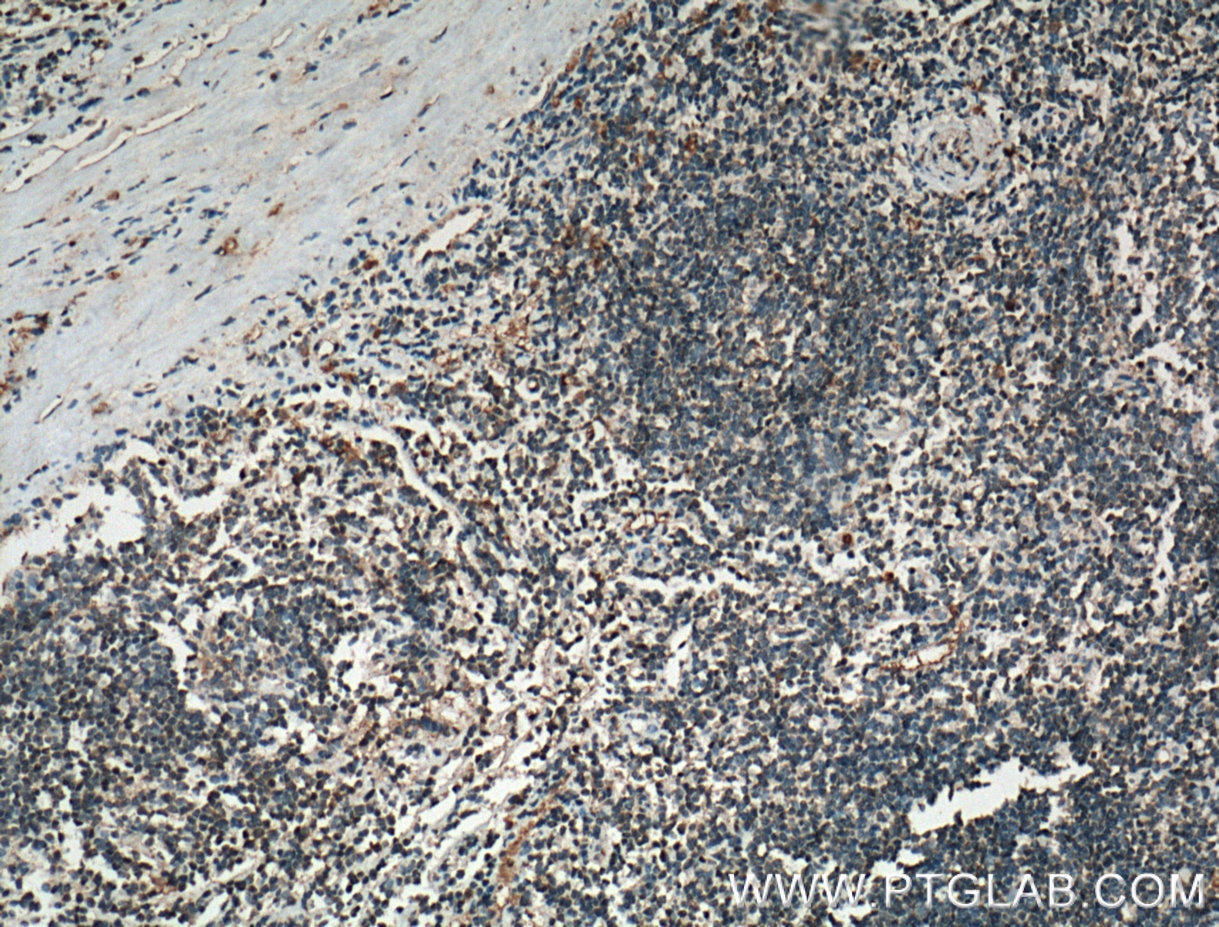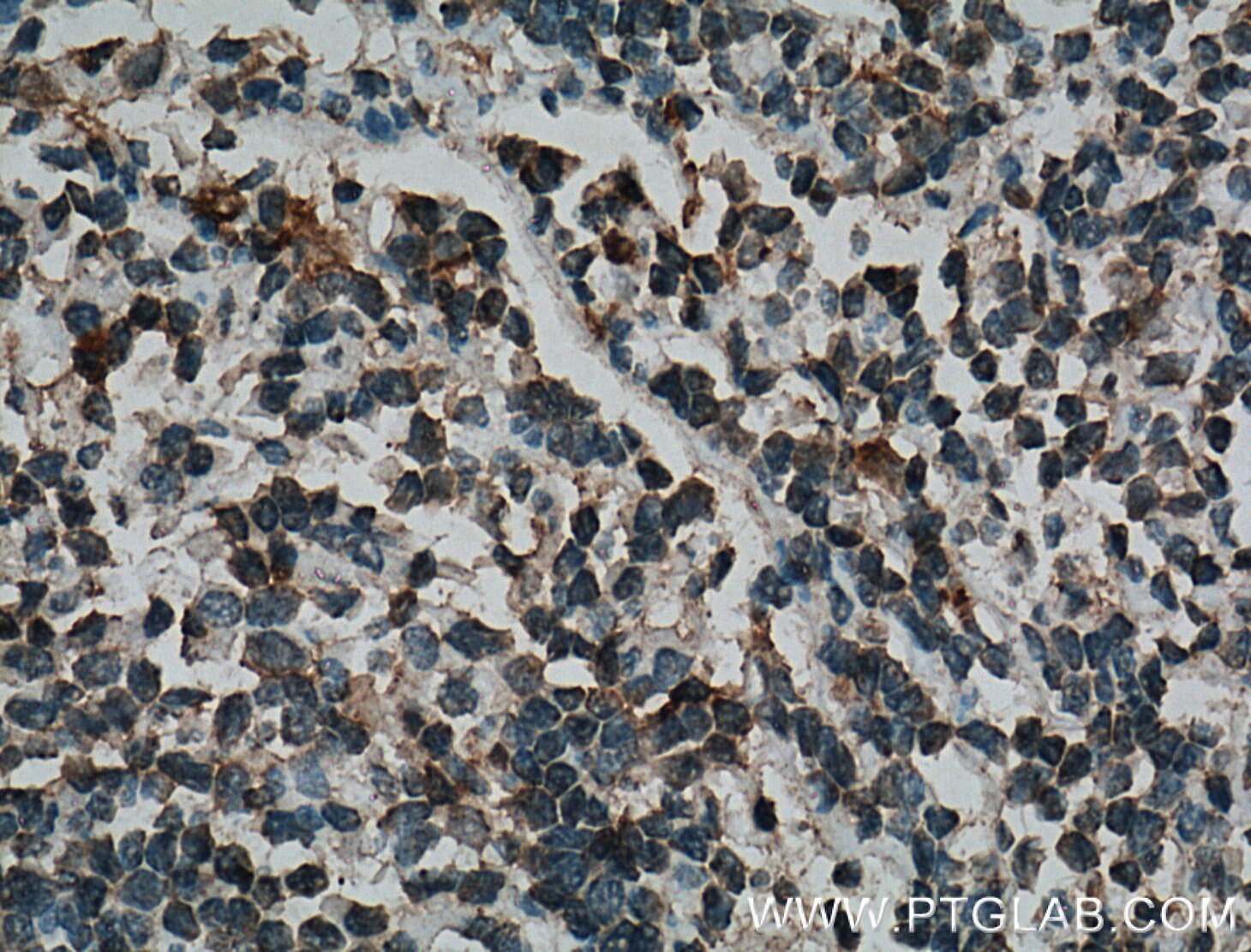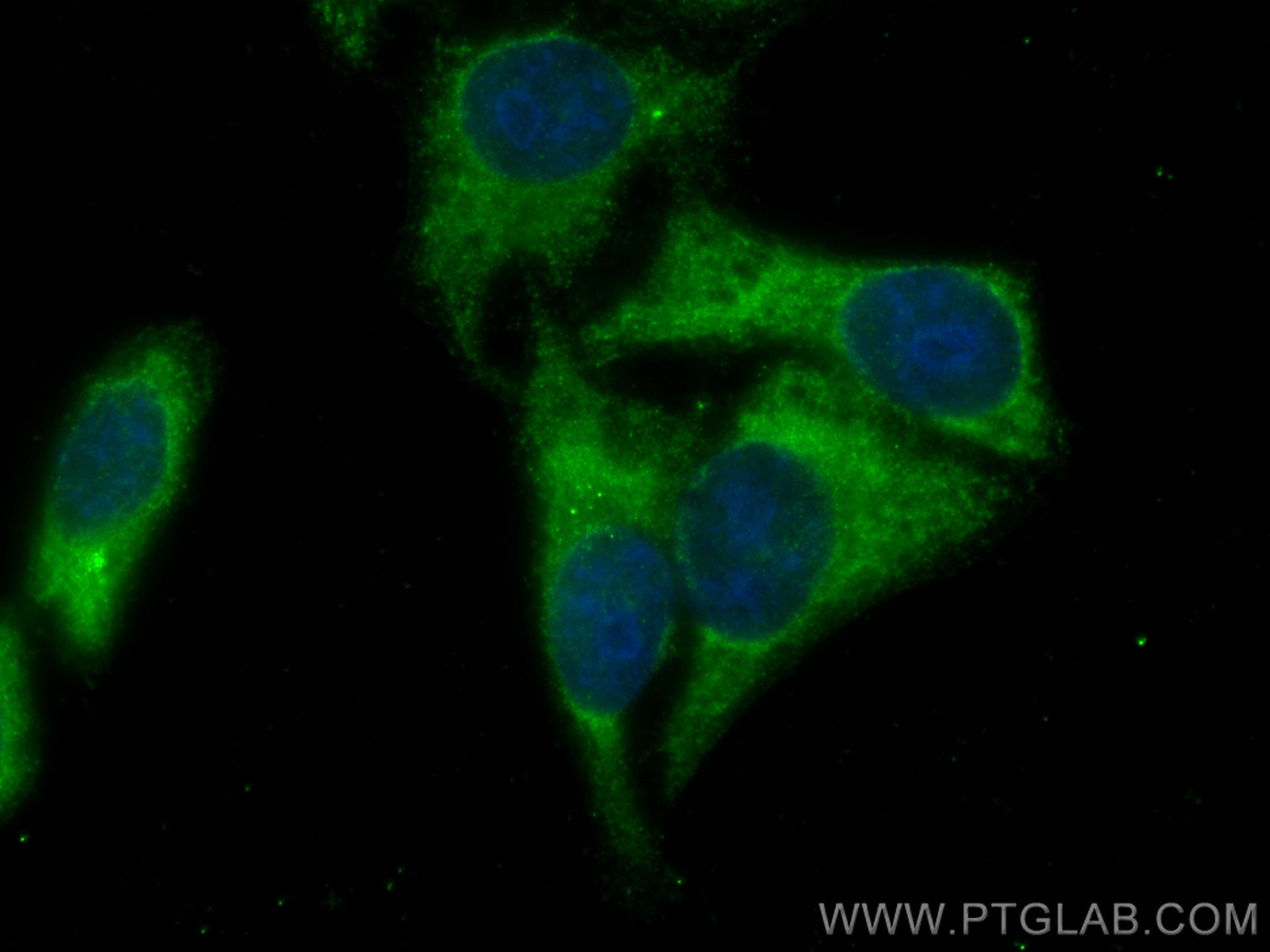Anticorps Polyclonal de lapin anti-HGF Alpha
HGF Alpha Polyclonal Antibody for IF, IHC, WB, ELISA
Hôte / Isotype
Lapin / IgG
Réactivité testée
Humain et plus (2)
Applications
WB, IHC, IF, ELISA
Conjugaison
Non conjugué
N° de cat : 26881-1-AP
Synonymes
Galerie de données de validation
Applications testées
| Résultats positifs en WB | cellules HEK-293T, cellules JAR, tissu placentaire humain |
| Résultats positifs en IHC | tissu de cancer du foie humain, tissu d'amygdalite humain il est suggéré de démasquer l'antigène avec un tampon de TE buffer pH 9.0; (*) À défaut, 'le démasquage de l'antigène peut être 'effectué avec un tampon citrate pH 6,0. |
| Résultats positifs en IF | cellules HepG2, |
Dilution recommandée
| Application | Dilution |
|---|---|
| Western Blot (WB) | WB : 1:500-1:2000 |
| Immunohistochimie (IHC) | IHC : 1:50-1:500 |
| Immunofluorescence (IF) | IF : 1:200-1:800 |
| It is recommended that this reagent should be titrated in each testing system to obtain optimal results. | |
| Sample-dependent, check data in validation data gallery | |
Applications publiées
| WB | See 14 publications below |
| IHC | See 3 publications below |
| IF | See 1 publications below |
Informations sur le produit
26881-1-AP cible HGF Alpha dans les applications de WB, IHC, IF, ELISA et montre une réactivité avec des échantillons Humain
| Réactivité | Humain |
| Réactivité citée | rat, Humain, souris |
| Hôte / Isotype | Lapin / IgG |
| Clonalité | Polyclonal |
| Type | Anticorps |
| Immunogène | HGF Alpha Protéine recombinante Ag25456 |
| Nom complet | hepatocyte growth factor (hepapoietin A; scatter factor) |
| Poids moléculaire observé | 69 kDa |
| Numéro d’acquisition GenBank | BC130286 |
| Symbole du gène | HGF |
| Identification du gène (NCBI) | 3082 |
| Conjugaison | Non conjugué |
| Forme | Liquide |
| Méthode de purification | Purification par affinité contre l'antigène |
| Tampon de stockage | PBS avec azoture de sodium à 0,02 % et glycérol à 50 % pH 7,3 |
| Conditions de stockage | Stocker à -20°C. Stable pendant un an après l'expédition. L'aliquotage n'est pas nécessaire pour le stockage à -20oC Les 20ul contiennent 0,1% de BSA. |
Informations générales
Hepatocyte growth factor (HGF) is the most potent mitogen of mature hepatocytes in primary culture. HGF is derived from a biologically inactive single chain precursor of 728 amino acids (pro-HGF) localized mostly on the cell surface and in the extracellular matrix. The mature form produced following proteolytic cleavage is composed of a 69-kDa α-subunit (containing four kringle domains) and the 34 kDa β-subunit, similar to the catalytic domain of serine proteases, but with amino acid substitutions in the active site. HGF is a pleiotropic cytokine which exerts a variety of effects on several cells, being involved in the regulation of many biological processes, such as inflammation, tissue repair, morphogenesis, angiogenesis, tumour propagation, immunomodulation of viral infections and cardio-metabolic activities.
Protocole
| Product Specific Protocols | |
|---|---|
| WB protocol for HGF Alpha antibody 26881-1-AP | Download protocol |
| IHC protocol for HGF Alpha antibody 26881-1-AP | Download protocol |
| IF protocol for HGF Alpha antibody 26881-1-AP | Download protocol |
| Standard Protocols | |
|---|---|
| Click here to view our Standard Protocols |
Publications
| Species | Application | Title |
|---|---|---|
ACS Nano Mesenchymal Stem Cell-Derived Extracellular Vesicles Attenuate Mitochondrial Damage and Inflammation by Stabilizing Mitochondrial DNA. | ||
Cancer Res ErbB3 targeting enhances the effects of MEK inhibitor in wild-type BRAF/NRAS melanoma. | ||
Clin Transl Med Ursodesoxycholic acid alleviates liver fibrosis via proregeneration by activation of the ID1-WNT2/HGF signaling pathway. | ||
J Control Release Peritoneal M2 macrophage-derived extracellular vesicles as natural multitarget nanotherapeutics to attenuate cytokine storms after severe infections. | ||
Int J Cancer Therapeutic Activity of DCC-2036, a Novel Tyrosine Kinase Inhibitor, against Triple-Negative Breast Cancer Patient-Derived Xenografts by Targeting AXL/MET. | ||
Cell Physiol Biochem Clinicopathologic Features and Prognostic Factors in Alpha-Fetoprotein-Producing Colorectal Cancer: Analysis of 78 Cases. |
